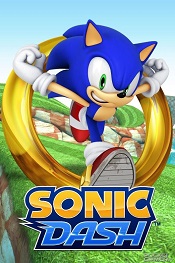
Wine is a free and open-source compatibility layer that aims to allow application software and computer games developed for Microsoft Windows to run on Unix-like operating systems. Wine also provides a software library, named Winelib, against which developers can compile Windows applications to help port them to Unix-like systems.
In computing, cross-platform software is computer software that is designed to work in several computing platforms. Some cross-platform software requires a separate build for each platform, but some can be directly run on any platform without special preparation, being written in an interpreted language or compiled to portable bytecode for which the interpreters or run-time packages are common or standard components of all supported platforms.
A computing platform or digital platform is an environment in which a piece of software is executed. It may be the hardware or the operating system (OS), even a web browser and associated application programming interfaces, or other underlying software, as long as the program code is executed with it. Computing platforms have different abstraction levels, including a computer architecture, an OS, or runtime libraries. A computing platform is the stage on which computer programs can run.

Sports Interactive Limited is a British video game developer based in London, best known for the Football Manager series. Founded by brothers Oliver and Paul Collyer in July 1994, the studio was acquired by Japanese video game publisher Sega in 2006; Sports Interactive is now a part of Sega West, which also comprises Creative Assembly, Relic Entertainment and Amplitude Studios. In addition to its work on Football Manager, the studio has also created a number of other sports-management simulations, including NHL Eastside Hockey Manager and Championship Manager Quiz, and is the former developer of Championship Manager.

Numerous video games based on the Jurassic Park franchise have been released. Developers Ocean Software, BlueSky Software and Sega produced various games in 1993, coinciding with the first film, Jurassic Park. In 1997, several developers, including DreamWorks Interactive and Appaloosa Interactive, produced various games for nine different platforms to coincide with the release of the film The Lost World: Jurassic Park.

Over one hundred video games based on the Star Wars franchise have been released, dating back to some of the earliest home consoles. Some are based directly on films while others rely heavily on the Star Wars Expanded Universe.

Shadowrun is a cyberpunk-fantasy action role-playing video game for the Super Nintendo Entertainment System, adapted from the tabletop role-playing game Shadowrun by FASA. The video game was developed by Australian company Beam Software and first released in 1993 by Data East.

Linux is a family of open-source Unix-like operating systems based on the Linux kernel, an operating system kernel first released on September 17, 1991, by Linus Torvalds. Linux is typically packaged in a Linux distribution.
Linux gaming refers to playing video games on a Linux operating system.
Two Tribes B.V. is an independent video game developer based in Harderwijk, Netherlands. Founded in 2001 by Martijn Reuvers and Collin van Ginkel, it develops its own intellectual property and games for franchises. As announced on 10 March 2016, the office closed in September 2016, after the release of Rive. However, Two Tribes continues development of the Nintendo Switch version of Rive, as well as supporting older games.

Shadowrun Returns is a tactical role-playing game developed and published by Harebrained Schemes. It takes place in the science fantasy setting of the Shadowrun tabletop role-playing game. The game was crowd funded through Kickstarter and released for Microsoft Windows, OS X, Linux, iOS, and Android in 2013.

Sonic Dash is a 2013 endless runner mobile game developed by Hardlight and published by Japanese game studio Sega. It is Hardlight's second Sonic the Hedgehog game, the first being 2012's Sonic Jump. The game was released in March 2013 for iOS, November 2013 for Android, and December 2014 for Windows Phone and Windows, along with an arcade release in November 2015 as Sonic Dash Extreme. It was initially released as a paid application, but was made free-to-play a month after its iOS release.

Elysian Shadows is an upcoming multiplatform indie 2D role-playing video game in development by GyroVorbis. The game is set to be published by WaterMelon, which previously developed and published the Sega Genesis title Pier Solar and the Great Architects in 2010. The development of Elysian Shadows has been chronicled in a YouTube series titled Adventures in Game Development. Elysian Shadows has been marketed as a "next-gen 2D role-playing game" (RPG) due to its hybrid 2D/3D graphical style.

Shadowrun is a science fantasy tabletop role-playing game set in a near-future fictional universe in which cybernetics, magic and fantasy creatures co-exist. It combines genres of cyberpunk, urban fantasy and crime, with occasional elements of conspiracy, horror and detective fiction. From its inception in 1989, Shadowrun has remained among the most popular role-playing games. It has spawned a vast franchise that includes a series of novels, a collectible card game, two miniature-based tabletop wargames, and multiple video games.
A roguelike deck-building game is a hybrid genre of video games that combine the nature of deck-building card games with procedural-generated randomness from roguelike games.
Comparison of user features of operating systems refers to a comparison of the general user features of major operating systems in a narrative format. It does not encompass a full exhaustive comparison or description of all technical details of all operating systems. It is a comparison of basic roles and the most prominent features. It also includes the most important features of the operating system's origins, historical development, and role.









